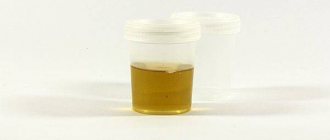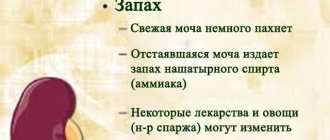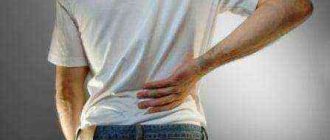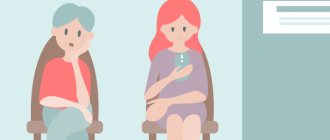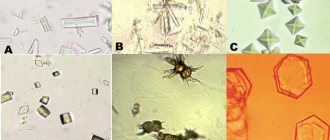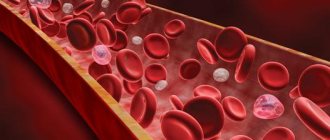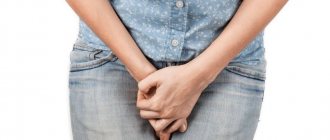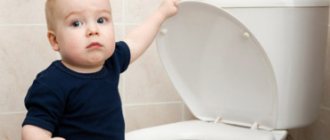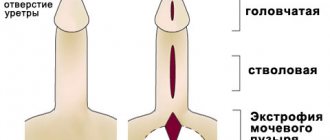December 15, 2014 | Comments: | Views: 385
Home » Health » What to do if your child has a cold?
Rate this article:
(No ratings)
A slight fever and runny nose in a small child can be a real emotional shock for his mother. True, “caring” neighbors and relatives who do not skimp on advice come to the rescue. However, following such recommendations can harm the baby.
Some grandmothers advise treating a child with heat, but excessive heat is no less harmful than hypothermia. Therefore, you should not cover your child with three cotton blankets and dress him in a sweater made of camel hair. The first signs of a cold are a cough and snot without fever in a child. Observe your child daily and start taking action at the first symptoms.
If your child has a cold, you should ventilate the room . A persistent myth is that in winter and autumn you should not open the window, as the child will freeze and get sick. In fact, respiratory infections are caused by viruses for which warm and stale air is favorable. It is advisable that the window is always slightly open.
Many mothers are afraid to go for a walk with a cold child. Fresh air is very beneficial for the respiratory tract. If your little one does not have a fever, you can safely go to the park with him, even better if there are coniferous trees there. True, during the period of illness you should not visit the playground so as not to infect other children.
Caring mothers try to make sure that their babies always walk around the apartment in warm socks or thick slippers. In fact, if the apartment is warm, it is better for the child to walk barefoot , this promotes hardening. There are important reflex points on the foot; massage of the sole and toes helps strengthen the immune system.
In winter, it is not recommended to cover the baby's nose and mouth with a scarf . Damp, wet tissue is an ideal environment for the growth of bacteria, which then penetrate the nasopharynx.
Some parents are afraid to bathe their children with a cold . The fact is that during illness, toxins are released through the skin, so it is advisable to bathe the baby even more often than usual. However, it is necessary to ensure that the child does not freeze after bathing. During colds, baths with yarrow decoction or sea salt are very useful.
You should not give your child antibiotics , as they are ineffective against viruses. They only deal with bacteria. A child with sore throat or pneumonia may need an antibiotic, and even in this case, a doctor’s consultation is required.
Garlic, mustard, honey, lemon are quite well-known folk remedies and can help in the early stages of a cold. However, caution must be exercised as they easily cause allergic reactions. Such drugs are contraindicated for children under 3 years of age.
How does the disease manifest itself?
The disease makes itself felt quite quickly. The child begins to complain of frequent and painful urination, usually in small portions. In addition, there are pains during urination. Children complain of tingling, back and lower back pain. Fever and chills may occur. Symptoms appear that are common to any inflammatory condition, when there is weakness, fever, a feeling of discomfort, and body aches.
The most common kidney disease caused by a cold is pyelonephritis. With this disease, the parenchyma (tissue) of the kidneys is affected. The cause of acute pyelonephritis is an inflammatory process caused by a pathogenic pathogen (staphylococcus, streptococcus).
Often acute pyelonephritis occurs after acute respiratory infections, tonsillitis, or influenza. The chronic form of the disease can occur due to insufficient treatment of acute pyelonephritis, which then worsens with a cold, hypothermia, or stress.
The disease manifests itself in the form of pain in the lumbar region, fever up to 38-39 degrees, headache, general weakness and malaise. Children complain of a frequent urge to urinate, which becomes painful, with pain, and in small portions. Urine may remain clear, or may contain blood, sand, or be cloudy.
Typically, lower back pain, frequent urination, fever and other symptoms of inflammation begin to bother you at night, after which the acute inflammatory process continues for several days if the necessary measures are not taken immediately.
How to feed a sick child?
As a rule, during a cold, a child's appetite is moderately reduced. Parents, trying to compensate for a decrease in appetite, often try to feed their child some delicious dishes. He is treated to exotic fruits, oriental sweets, red caviar and other products that a child very rarely eats in everyday life. However, new (even very tasty) food requires adaptation, and with illness, digestion capabilities are reduced. And instead of benefit, a cold may be accompanied by indigestion.
Food should be familiar to the child, not plentiful, although, of course, preference should be given to favorite, especially vegetable dishes. But it is useful to increase the amount of liquid (fruit drinks, juices) in the diet. This is due to increased activity of metabolic processes, increased formation of toxins, the need to remove waste products of microorganisms, as well as increased fluid consumption with increased body temperature.
What to do
In such cases, you should not try to independently diagnose and prescribe treatment. Especially when it comes to children! Be sure to consult a doctor as soon as possible, who will conduct an examination, after receiving the results of tests and other research methods, and, if necessary, prescribe appropriate treatment.
In addition to a general blood and urine test, additional laboratory methods (urinalysis according to Zimnitsky, according to Nechiporenko, etc.) and instrumental research methods, for example, ultrasound, may be needed. The doctor may prescribe antibiotics, sulfa drugs, diuretics and painkillers to treat cold kidneys.
Also, medicinal herbal decoctions are used, which have diuretic, anti-inflammatory and antimicrobial effects. You can prepare decoctions yourself by mixing certain herbs in the right proportions, or you can buy ready-made infusions specifically designed for treating the genitourinary system in pharmacies.
Thus, the following medicinal herbs are usually used in the treatment of kidneys:
- bearberry;
- St. John's wort;
- bear ears;
- knotweed;
- corn silk;
- Birch buds;
- chamomile, etc.
You should always remember that herbal treatment is not at all safe! In addition to age restrictions, there is also individual intolerance to one or another component. All actions regarding the use of medicinal plants should be strictly coordinated with your doctor. Only then will decoctions and infusions of herbs, leaves and roots be able to truly demonstrate their healing properties!
How is the disease diagnosed?
In children, the urine excretion system is much more sensitive than in adults, so as soon as the first signs of a cold in the bladder appear, you should immediately contact your pediatrician for recommendations. If he suspects inflammation in the urinary canal, bladder or urethral canal, a series of examinations are prescribed, including: biomaterials for general analysis, urine for culture, an ultrasound of the genitourinary system, a smear is taken from the urethra, urography and cystoscopy are performed, in some In cases, you will have to do an MRI.
Based on the results of the examinations, the doctor determines the course of treatment with medications against inflammation, and during its course, tests must be regularly taken to monitor the effectiveness of the prescribed regimen. Treatment continues until complete recovery and lasts from 2 weeks to a couple of months. The duration of the course depends on the degree of cold or infectious etiology of inflammation, as well as depending on the general condition of the baby.
How to treat kidney colds in children
So what to do if your kidneys are blown? If there are no contraindications, warming measures can be carried out. They take hot sitz baths, steam their feet with the addition of mustard powder, and wrap the lumbar area warmly with a woolen or down scarf. The child needs to wear warm woolen socks on his feet, as it is known that “the kidneys love warmth in the feet.”
At the time of treatment, the child’s exposure to the street should be limited or excluded, especially in cold and damp weather. At night, you can place a warm heating pad under your child’s back and legs.
The disease manifests itself in the form of pain in the lumbar region, fever up to 38-39 degrees, headache, general weakness and malaise. Children complain of a frequent urge to urinate, which becomes painful, with pain, and in small portions. Urine may remain clear, or may contain blood, sand, or be cloudy.
Typically, lower back pain, frequent urination, fever and other symptoms of inflammation begin to bother you at night, after which the acute inflammatory process continues for several days if the necessary measures are not taken immediately.
When can you start walking and exercising when you have a cold?
Walking in the air is resumed after the main manifestations of the cold have been eliminated, without waiting for complete recovery. Depending on the season, the duration of the first walks is reduced to 30-40 minutes. At the same time, they try to ensure that the child does not run or sweat during walks. Hypothermia in a child can cause a cold to worsen. However, a long absence of walks will complicate the recovery of the child’s body after an illness and create the preconditions for a new cold. After the symptoms of the disease disappear, there is no need to rush to place the child in a group. Resistance to infections during a cold decreases; recovery in different children takes from 10 days to 2-3 weeks, during which the child can easily become infected again. After a cold, children's physical capabilities decrease. It takes a certain time to replenish the body's energy and vitamin reserves. Therefore, it is advisable if the child is exempted from attending physical education classes for 2 weeks, and if he plays sports, then he is suspended from participating in competitions for 1 month.
A cold is an infectious disease of the upper respiratory tract, which is accompanied by an inflammatory process in the nasopharynx. Runny nose, stuffy nose, red eyes, watery eyes - all these symptoms can persist in a child for 5-10 days. Sneezing, coughing, fever, joint pain are some typical symptoms of the disease. How can your child get a cold? Many parents, unfortunately, have misconceptions about this virus. For example, parents believe that their child may catch a cold if he stands in a draft or forgets to tie a warm scarf around his neck. These ideas are not true. A cold is a viral disease that is transmitted through direct contact with a patient or with personal items (for example, handkerchiefs). The cold virus spreads very quickly, especially in the initial period of the disease (the first two to three days). During this period, the symptoms of a cold do not yet make themselves felt, the patient may not feel any discomfort. It should be noted that in autumn and winter children are especially susceptible to colds. At school, a child constantly comes into contact with his peers, and therefore with the virus. There are no medications that can affect the cold virus. However, you can greatly improve your child's condition if you follow these tips.
- If a child has a stuffy nose, he breathes through his mouth. This leads to the drying out of the nasopharynx, and as a result the body loses a large amount of fluid. Thus, during illness, your child should drink as much fluid as possible (water, fruit juices).
- When a child is ill, his appetite usually decreases, so offer him small portions of nutritious, high-calorie foods.
- Install air conditioning in your child's room.
- Regularly measure your child's temperature and monitor his general condition.
- Surround your child with attention and care.
The cold virus does not respond to penicillin and other antibiotics. Modern, widely advertised medications, unfortunately, are also not ways to kill the cold virus. If your child has a fever, use the tips in the Fever section. Under no circumstances should you give your child aspirin: this drug, according to research, contributes to the development of such a dangerous neurological disease as Reye's syndrome. Take all measures to prevent the virus from spreading among your family members. Teach your child to wash their hands before eating. When a child sneezes or coughs, he must cover his mouth with a handkerchief or tissue. Remember: cups, glasses and other kitchen utensils are personal items and should never be shared with anyone. The cold virus has a tendency to self-destruct; it is eliminated from the body on its own and does not cause any complications. In some cases, however, a child infected with a cold virus may develop worrying symptoms. If your child complains of ear or throat pain, shortness of breath, or if the high temperature lasts more than 48 hours, be sure to contact your pediatrician. When the symptoms of the disease completely disappear, the child can return to school.
What to do
In such cases, you should not try to independently diagnose and prescribe treatment. Especially when it comes to children! Be sure to consult a doctor as soon as possible, who will conduct an examination, after receiving the results of tests and other research methods, and, if necessary, prescribe appropriate treatment.
In addition to a general blood and urine test, additional laboratory methods (urinalysis according to Zimnitsky, according to Nechiporenko, etc.) and instrumental research methods, for example, ultrasound, may be needed. The doctor may prescribe antibiotics, sulfa drugs, diuretics and painkillers to treat cold kidneys.
Also, medicinal herbal decoctions are used, which have diuretic, anti-inflammatory and antimicrobial effects. You can prepare decoctions yourself by mixing certain herbs in the right proportions, or you can buy ready-made infusions specifically designed for treating the genitourinary system in pharmacies.
Thus, the following medicinal herbs are usually used in the treatment of kidneys:
- bearberry;
- St. John's wort;
- bear ears;
- knotweed;
- corn silk;
- Birch buds;
- chamomile, etc.
You should always remember that herbal treatment is not at all safe! In addition to age restrictions, there is also individual intolerance to one or another component. All actions regarding the use of medicinal plants should be strictly coordinated with your doctor. Only then will decoctions and infusions of herbs, leaves and roots be able to truly demonstrate their healing properties!
It should be remembered that if the kidneys are not treated, the disease can go from acute to chronic. It is also possible to develop complications that can have a detrimental effect on health, especially in childhood. The organs of the body's urinary system are closely related to the genital organs, so acute and chronic diseases of the urinary organs can lead to inflammation of the genital organs.
If treatment is not timely or if this issue is ignored, a violation of the reproductive function of the body may occur. It is especially dangerous if a bacterial or viral infection is added to the inflammation process, which significantly complicates the treatment process.
In such cases, the prescription of antibiotics and sulfonamide drugs is simply necessary. Do not forget that only a doctor should prescribe them! If you take antibiotics on your own, you may experience anaphylactic shock or angioedema - dangerous allergic conditions that can be fatal if medical attention is not provided immediately.
Causes of bladder colds
In the case when a child has a cold in his bladder, the doctor carries out a diagnosis in the form of comprehensive examinations and determines the cause of the disease, which is most often cystitis. It can be of a cold or infectious etiology, based on which a specialist prescribes effective treatment.
Most often, a cold in this organ occurs when several factors coincide:
| № | Helpful information |
| 1 | penetration into the urinary tract of staphylococci, streptococci, Escherichia coli or chlamydia |
| 2 | insufficiently rich diet containing few vitamins |
| 3 | pathologies in the development of the urinary system, most often of the congenital type |
| 4 | detection of candida fungus on the external surfaces of the external genitalia |
| 5 | Frequent overuse of antibiotics without proper dosage |
| 6 | undergone surgical interventions on the genitourinary system |
| 7 | the presence of masses, stones or other concretions in the kidneys or bladder |
| 8 | frequent long-term constipation |
| 9 | insufficient personal hygiene, especially after defecation, when an infection can enter the urethral canal from the anus |
More on the topic: What is the norm of red blood cells in urine?
In order to make the correct diagnosis and choose adequate treatment, the doctor does not discard any of the possible factors leading to a bladder cold in a child. Timely identification of the cause of this disease will prevent relapse and will contribute to the development of a preventive set of actions to maintain a healthy state of the genitourinary system.
Preventive measures
It is known that it is easier to prevent a disease than to treat it later. This is especially important when it comes to preserving the health of children! To prevent the occurrence of colds of the kidneys and genitourinary system, you must follow some rules:
- Avoid hypothermia of the child's body.
- Start treatment of colds and respiratory diseases in a timely manner and carry them out in full in accordance with medical prescriptions.
- If there are chronic inflammatory diseases, then carry out planned preventive treatment and strengthening measures.
- Provide sanatorium-resort treatment and rehabilitation.
- Harden the child's body.
Traditional medicine methods in the treatment of bladder colds
Alternative medicine suggests the use of warm baths and herbal infusions that have a healing effect. Traditional medicine treats this method with a little mistrust, so all responsibility for treatment in this way rests with the parents. It is recommended to supplement the therapeutic regimen prescribed by the pediatrician with comprehensive measures of traditional medicine.
For children with a cold in the bladder, traditional medicine offers the following recipes:
Ordinary chamomile is brewed together with calendula flowers with clean boiling water. The broth should cool slightly to a comfortable temperature, after which it is recommended to wash the child instead of plain water. This tincture can be used for bathing, leaving the baby in it for a short period of time so that his pelvic area is completely immersed in water. Such bathing is recommended in the morning and evening.
More on the topic: How to treat genitourinary schistosomiasis?
A decoction of coltsfoot leaves. It is taken orally in accordance with the age of the child in a small dosage. This herb has an anti-inflammatory effect and actively improves the general condition of the baby, as well as the condition of his bladder. The dosage must be agreed with your doctor.
The effectiveness of rose hips, which is brewed with boiling water and left on low heat for 15-20 minutes, has been proven. The liquid is filtered, debris and fruits are removed, and the baby takes the tincture orally instead of compote. This infusion is diuretic and anti-inflammatory, absolutely safe, does not cause allergies.
Before starting to take any herbs, it is necessary to consult a pediatrician to clarify the dosage and determine whether children have allergies. Tinctures and herbs in the form of tea are introduced gradually, with monitoring of the baby’s general condition.
What to do if your child withdraws into himself
Home » Adolescent Psychology » What to do if a child withdraws into himself
A common reason for teenagers seeking advice from a psychologist is alienation from parents, the child withdraws into himself. This causes concern because there is something going on in a child's life that adults have no idea about. Parents are willing to invest time and effort into restoring contact. Often they cope with the task on their own, but in some cases, consultation with a psychologist for the child and parents is simply vital in order to restore the relationship.
Why does a child withdraw into himself?
The desire to communicate is natural for teenagers. As a rule, they easily make new friends, organize get-togethers in groups, and come up with common entertainment. Even when joining a new team, many children adapt without problems.
But the desire to be left completely alone is an alarming signal. This means that the child suffers from increased emotionality, low self-esteem, aggression or shyness.
The reasons for withdrawal can be anything from psychological or physical abuse to excessive attachment to a family member. A confidential conversation with your child will help you figure this out. If he is not ready to open up, you should contact an experienced child psychologist.
In what forms can isolation be expressed?
The very concept of “closedness” means that a person encloses himself in a certain framework and protects himself from communication with other people. This condition is accompanied by one or more symptoms:
- Silence. People are different: some communicate more, others less. Everyone has their own habits and manners. If a child has become less sociable, meets with friends much less often, has become silent more often, answers questions briefly and in monosyllables, and does not enter into dialogues unless absolutely necessary, this is worth paying attention to. It makes sense to sign up for a psychological consultation with your child.
- Stealth. Not every person (regardless of age) strives to talk about themselves. Some people are so secretive, so rarely show emotion, that they seem incapable of empathy. Perhaps the fact that the child does not share information with others would not be so bad if not for one “but”. Children and adolescents themselves may experience fear. They cannot overcome the barrier and tell their parents about their experiences, although they really need it.
- Aggression. By limiting communication, the child feels the need for it and suffers. He can express his unsatisfied desires in an aggressive form - rudeness, lack of restraint, ill will, the desire to break, destroy things, beat peers. The child begins to hate the world for its indifference to it. Such children and adolescents definitely need psychological help.
- Fear. The most dangerous symptom that a withdrawn child can exhibit is fear. He is able to completely take over a teenager and often pushes him to inappropriate actions. Their reactions to any stimuli become unpredictable. Small children may hide or cry. In such cases, the child needs the help of a psychologist.
When do children need psychological help?
If you notice one or more of the signs listed above, try to establish contact with your child: walk more, do homework together, communicate. Don't criticize or scold your child or teenager for their "strange" reactions. Try to understand what motives drive him.
Remember, “time-tested” harsh methods - punishments or lectures - will not help you. The best thing you can do is to become a true, reliable friend to your child. Try to understand and accept his hobbies, music, friends (unless, of course, we are talking about “bad company” where drinking or smoking is common).
If you see that you can't cope, don't panic and don't blame yourself. Contact our psychological center. We will help you understand the reasons for the isolation of a child or teenager. Competent child psychological help is exactly what is needed to establish harmonious relationships.
Our phone numbers are on the website. Just call and schedule a consultation!
Make an appointment
Subscribe to our newsletter
Did you like it?! Share the post with your friends
- Related Posts
- Blue whale - what is it and how to protect your child from dangerous games
- Helping a teenager - talking about the meaning and goals of life
- Difficult teenager: absenteeism, lies, problems. This can be solved!
- Child's relationships with peers - difficulties and problems
- Advice from a psychologist: are you sure that your child is happy?
- Stay-at-home teenager: how to help with socialization?
